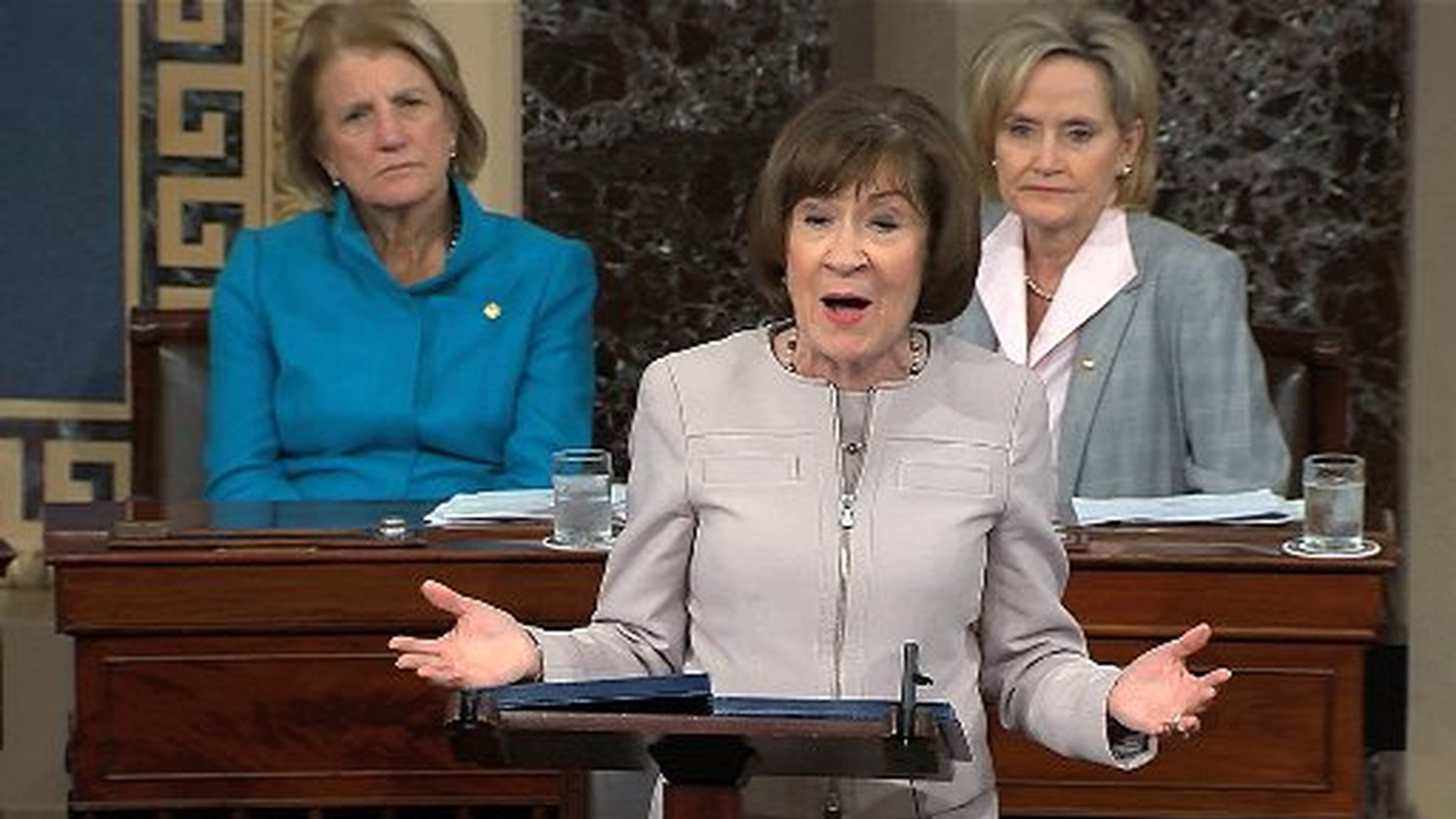This Life with Gracie: Why are women surprised, angered by Kavanaugh confirmation?

The reaction to Brett Kavanaugh’s confirmation left me flummoxed.
I don’t know why people, women in particular, were surprised. The handwriting was clearly on the wall. Remember Clarence Thomas?
All of it reminded me of a story I used to read to my daughters about a certain snake biting the one that cared for it because, well, that’s what snakes do.
I’ll leave it up to you to decide who’s the snake in this tale, but exit polls show white women voters actually preferred Donald Trump to Hillary Clinton.
Now women are upset with President Trump and the GOP. If you believe news reports, their frustration has been building steadily for at least a year now and strengthened during Kavanaugh’s contentious confirmation hearing for a seat on the Supreme Court.
But if the Senate didn’t believe Anita Hill, who accused Thomas of sexual harassment, why did women think they’d believe Dr. Christine Blasey Ford, who accused Kavanaugh of a sexual assault that allegedly occurred more than 30 years ago?
Many white women have argued that the possible false accusations against Kavanaugh could happen to their sons, brothers, husbands, fathers.
Funny, that’s the same argument many black women, including myself, have made in defense of the Black Lives Matter movement and the NFL protests. On any given police stop, my black husband, brother, nephew could become an inadvertent victim, too.
Having said that, the chance of any man being wrongly accused of sexual assault is pretty low. According to the Justice Department, 98 percent of those who report abuse are telling the truth.
In the beginning, I thought it was unfair to judge Kavanaugh for something he did as a teenager — until I watched the change in his demeanor during the hearings.
That didn’t bother Andrea Shelton of Atlanta.
“I thought he could’ve handled himself better, but I don’t knock him for his reaction,” she said. “I’m not certain I wouldn’t have become flustered if I were wrongly accused.”
RELATED: Why some women won't support Hillary Clinton
But why were women so surprised by the confirmation and more specifically surprised that a woman, Sen. Susan Collins, R-Maine, handed him a yes vote?
They should not have been, said College of Charleston professor Claire Wofford.

While a sense of gender identity and “linked fate” do sometimes ensure that female politicians act on behalf of women and “women’s interests,” this is by no means an absolute or something that applies in all situations, said Wofford, who teaches political science with an emphasis on the role of gender in the political power structure.
“As we see with Collins, electoral prospects and political party pressures often supersede female politicians ‘acting for’ other females, both their constituents and women in general,” she said. “Social science tells us that a female politician, in general, is more likely to support women’s issues than a similarly situated male politician, but this is a generalization that cannot be directly applied to individual elected officials in every situation.”
Melinda Hall, an assistant professor of philosophy at Stetson University, agreed but for a slightly different reason.

Hall said that conservative women like Sen. Collins are highly unlikely to see their interests as aligned with progressive causes like the #MeToo movement, even though they are oppressed by the forces these causes aim to change.
“They feel too much kinship with the status quo,” she said.
Meanwhile, Hall said, women who experience multiple forms of oppression, including women of color and queer and trans women, are far more likely to push back against sexist oppression because they are not afforded a comfortable place in the mainstream culture that dominates women, and this might drive their voting behavior.
RELATED: Why two Atlanta women will join their first protest march
In 1979, feminist philosopher Sandra Bartky argued that women lack a shared women’s culture and so are culturally dominated. This means they are oppressed but do not challenge their oppression.
Why?

Hall said that Bartky believed that women share oppression with other women, but they have no shared memory of a time before their oppression to inspire them.
“Women will be most impacted by those they have the strongest kinship with,” Hall said, “and these are often their oppressors themselves, including family, rather than other women.”
These problems are redoubled by the fact that women easily fall prey to believing cultural stereotypes that harm women, since they are strongly influenced by dominant sexist and racist culture yet may see themselves as exceptions to it.
“In my opinion, for these reasons, women are not necessarily going to ally themselves with other women, and in fact would need to notice and fight hard against the pull of the dominant oppressive culture in order to do so,” Hall said. “This is especially true for women for whom the dominant culture provides privileges, including white and wealthy women.”
And so for all the talk about women taking it to the ballot box in a few short weeks, I don’t have much hope. Hall doesn’t seem to, either.
“Many women — and especially white women — might continue to vote according to the culture that dominates them,” she said.
Still, she said, widespread eruptions of mass protests and public conversation are building a much stronger shared culture for women.
With that background, it is quite possible they might be able to see past cultural stereotypes and feel ties with women of color and others with a history of oppression. Maybe.
Find Gracie on Facebook (www.facebook.com/graciestaplesajc/) and Twitter (@GStaples_AJC) or email her at gstaples@ajc.com.


